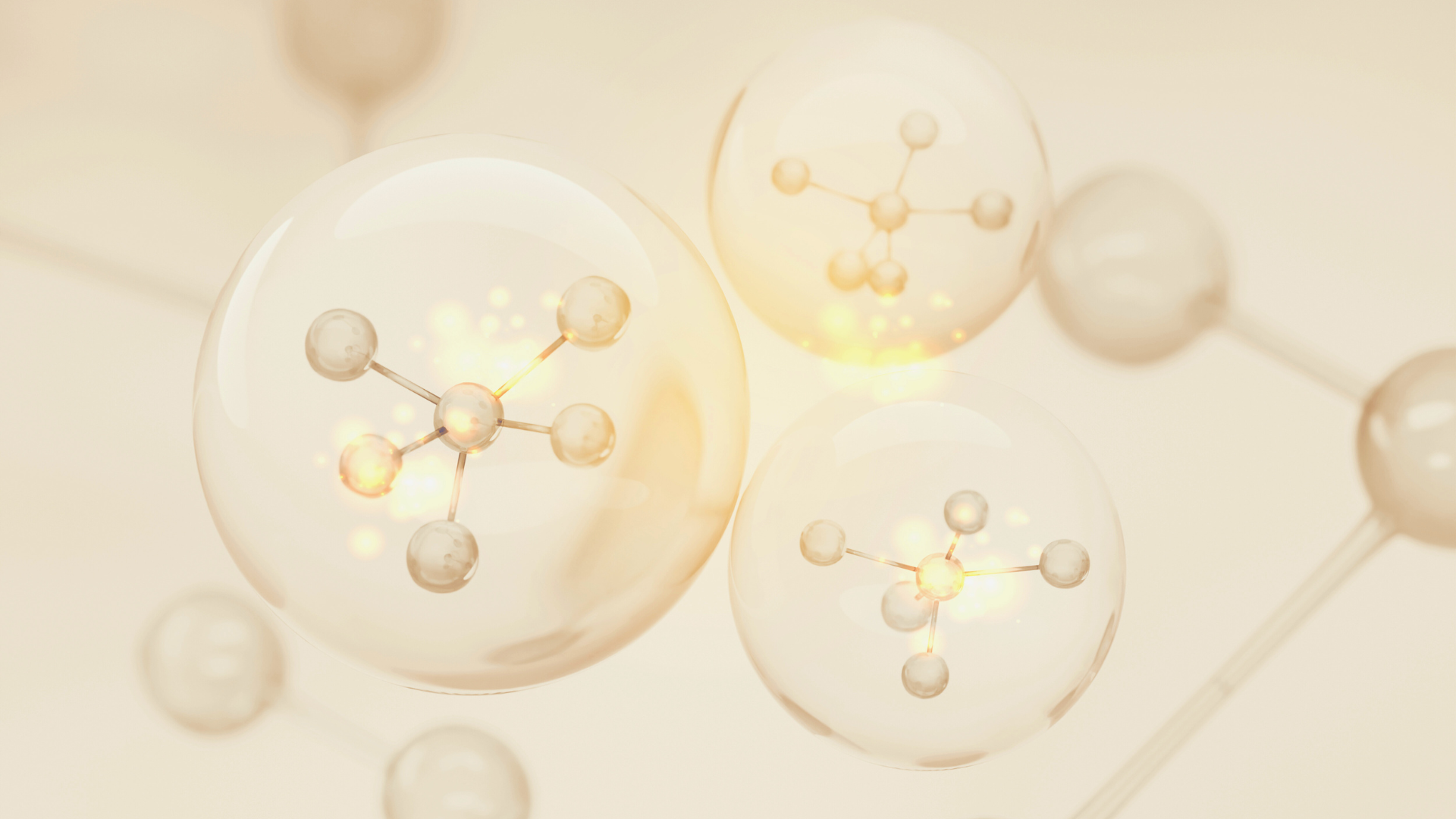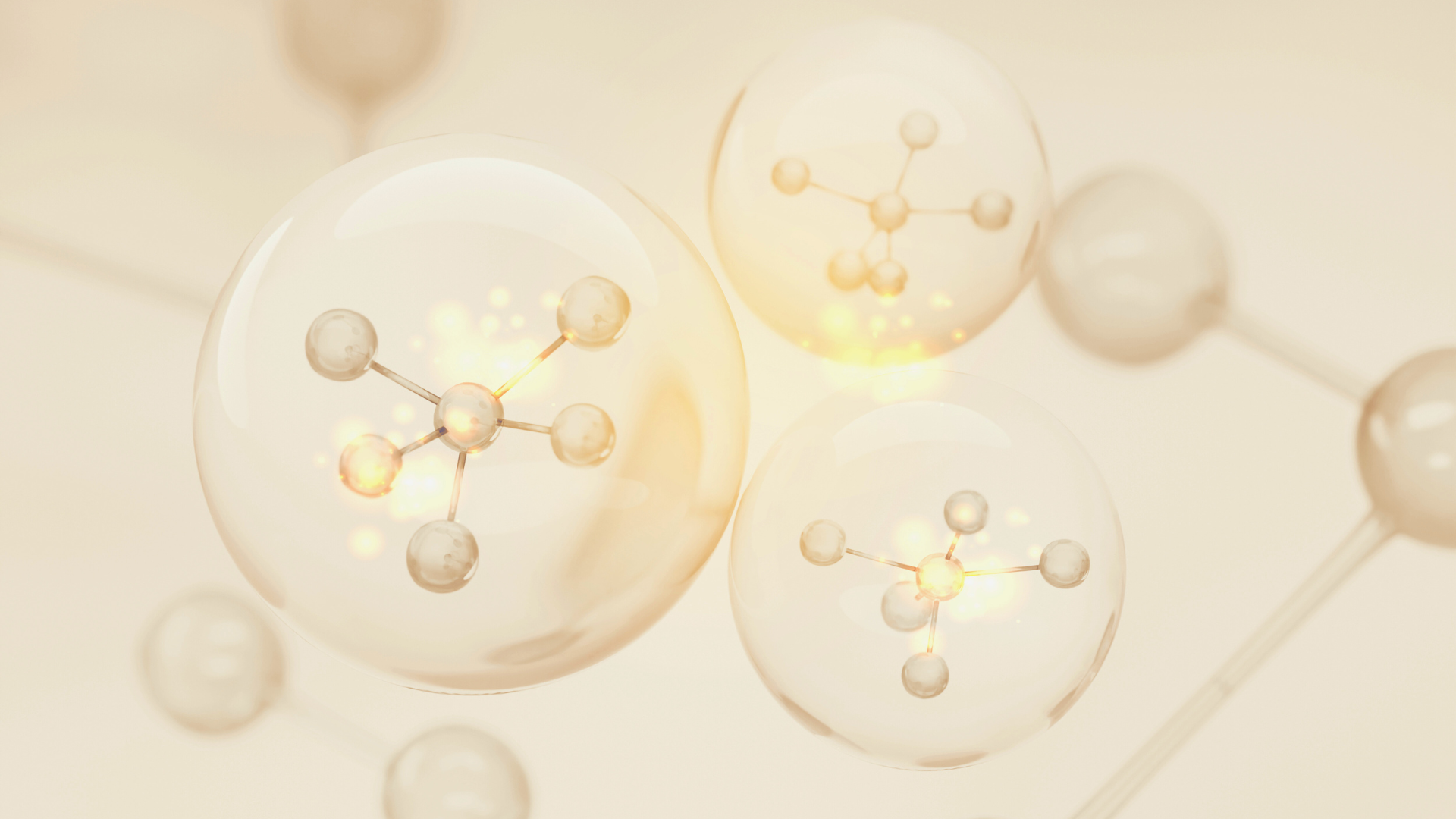
Healthy skin plays a crucial role in overall well-being. Biomolecules delivering exceptional benefits to the skin enhance its quality and texture. These molecules, found in various cosmetic products, help prevent immune responses and preserve ingredients. Studies have shown that antioxidant vitamins support skin function and inflammatory response during wound healing. Additionally, vitamin C increases collagen production, improving skin elasticity. The blog will explore how these biomolecules contribute to maintaining vibrant, healthy skin.
Understanding Biomolecules
Types of Biomolecules
Proteins
Proteins serve as fundamental building blocks in the body. Collagen, elastin, and keratin are essential proteins for skin health. Collagen provides structure and strength. Elastin offers elasticity and resilience. Keratin contributes to the protective barrier.
Lipids
Lipids play a crucial role in maintaining skin hydration and integrity. Ceramides, fatty acids, and cholesterol are key lipids. Ceramides help retain moisture. Fatty acids support the skin's barrier function. Cholesterol maintains skin flexibility.
Carbohydrates
Carbohydrates provide energy and structural support. Glycosaminoglycans and hyaluronic acid are significant carbohydrates for the skin. Glycosaminoglycans maintain hydration and elasticity. Hyaluronic acid retains water and keeps the skin plump.
Nucleic Acids
Nucleic acids, including DNA and RNA, are vital for cellular functions. DNA repair mechanisms protect skin cells from damage. RNA plays a role in protein synthesis, ensuring the production of essential skin proteins.
Functions of Biomolecules in the Body
Structural Functions
Biomolecules contribute to the structural integrity of tissues. Proteins like collagen and elastin provide strength and elasticity. Lipids maintain the skin's barrier and prevent moisture loss. Carbohydrates like glycosaminoglycans support tissue hydration and resilience.
Metabolic Functions
Biomolecules participate in metabolic processes. Enzymes, which are proteins, catalyze biochemical reactions. Lipids store energy and regulate metabolism. Carbohydrates supply energy for cellular activities.
Regulatory Functions
Biomolecules regulate various physiological processes. Proteins act as hormones and signaling molecules. Lipids influence inflammatory responses and cell communication. Nucleic acids control gene expression and protein synthesis.
National Center for Biotechnology Information highlights the importance of biomolecules in cosmetic products. These molecules prevent immune responses and preserve ingredients, enhancing skin health.
Understanding the roles and functions of biomolecules provides insight into their significance for skin health.
Biomolecules and Skin Health

Role of Proteins in Skin Health
Collagen
Collagen provides structure and strength to the skin. This protein forms a scaffold that maintains skin firmness. Collagen production decreases with age, leading to wrinkles and sagging. Biomolecules delivering exceptional benefits to the skin include collagen supplements and creams. These products help restore skin elasticity and reduce signs of aging.
Elastin
Elastin offers elasticity and resilience. This protein allows the skin to return to its original shape after stretching. Elastin fibers maintain skin flexibility. Aging and environmental factors degrade elastin, resulting in less elastic skin. Biomolecules delivering exceptional benefits to the skin often contain elastin to improve skin texture and elasticity.
Keratin
Keratin contributes to the protective barrier of the skin. This protein forms a tough, fibrous structure that shields the skin from damage. Keratin also helps retain moisture, keeping the skin hydrated. Biomolecules delivering exceptional benefits to the skin include keratin-based products that enhance skin protection and hydration.
Role of Lipids in Skin Health
Ceramides
Ceramides help retain moisture in the skin. These lipids form a barrier that prevents water loss. Ceramides also protect the skin from external irritants. Biomolecules delivering exceptional benefits to the skin include ceramide-rich moisturizers. These products improve skin hydration and barrier function.
Fatty Acids
Fatty acids support the skin's barrier function. These lipids maintain skin hydration and integrity. Fatty acids also reduce inflammation and promote healing. Biomolecules delivering exceptional benefits to the skin include fatty acid supplements and creams. These products enhance skin health by maintaining moisture and reducing irritation.
Cholesterol
Cholesterol maintains skin flexibility. This lipid helps stabilize the skin barrier and prevent moisture loss. Cholesterol also supports the repair of damaged skin. Biomolecules delivering exceptional benefits to the skin include cholesterol-infused skincare products. These products improve skin elasticity and hydration.
Scientific Research Findings:
Lipids and skin barrier function – a clinical perspective highlights the importance of lipids in maintaining a healthy skin barrier. Lipids reduce moisture loss and prevent allergens and microbes from entering the body.
Skin lipids in health and disease: A review emphasizes the role of nutritional status in skin health. Topical application of micronutrients can enhance skin nutrition directly.
Role of Carbohydrates in Skin Health
Glycosaminoglycans
Glycosaminoglycans maintain hydration and elasticity. These carbohydrates attract and retain water in the skin. Glycosaminoglycans also support tissue resilience. Biomolecules delivering exceptional benefits to the skin include glycosaminoglycan-based products. These products keep the skin plump and hydrated.
Hyaluronic Acid
Hyaluronic acid retains water and keeps the skin plump. This carbohydrate binds to water molecules, providing intense hydration. Hyaluronic acid also reduces the appearance of fine lines and wrinkles. Biomolecules delivering exceptional benefits to the skin include hyaluronic acid serums and creams. These products enhance skin hydration and smoothness.
Role of Nucleic Acids in Skin Health
DNA Repair
DNA repair mechanisms protect skin cells from damage. Environmental factors like UV radiation and pollution cause DNA damage. This damage leads to premature aging and skin disorders. Biomolecules delivering exceptional benefits to the skin include DNA repair enzymes. These enzymes identify and correct damaged DNA strands. Effective DNA repair maintains healthy skin and reduces aging signs.
Scientific Research Findings:
Skin lipids in health and disease: A review emphasizes the role of nutritional status in skin health. Micronutrient deficiencies impact skin structure and function. Topical application of micronutrients enhances skin nutrition directly.
RNA and Protein Synthesis
RNA plays a crucial role in protein synthesis. RNA molecules translate genetic information into proteins. Proteins like collagen, elastin, and keratin are essential for skin health. Biomolecules delivering exceptional benefits to the skin include RNA-based treatments. These treatments boost protein production, improving skin texture and elasticity.
Scientific Research Findings:
Lipids and skin barrier function – a clinical perspective highlights the importance of lipids in maintaining a healthy skin barrier. Lipids reduce moisture loss and prevent allergens and microbes from entering the body.
Biomolecules delivering exceptional benefits to the skin ensure proper RNA function and protein synthesis. This process supports skin regeneration and repair. Healthy protein levels maintain skin firmness and hydration.
Research Studies and Findings
Scientific Research Findings:
Recent Studies on Collagen
Tetrahedral framework nucleic acids promote scarless healing of cutaneous wounds via the AKT-signaling pathway reveals that tFNAs can enhance cell migration and proliferation. This study shows that tFNAs increase the secretion of growth factors and relieve inflammatory reactions. These findings suggest that tFNAs can promote skin wound healing and reduce scar formation.
Nutritional support of the regenerating epidermis and dermis during the latter stages of wound healing highlights the importance of nutritional support in long-term wound resolution. Proper nutrition promotes the restoration of strong, healthy skin.
Advances in Lipid Research
Scientific Research Findings:
Lipids and skin barrier function – a clinical perspective underscores the importance of lipids in maintaining a healthy skin barrier. Lipids reduce moisture loss and prevent allergens and microbes from entering the body.
Skin lipids in health and disease: A review emphasizes the role of nutritional status in skin health. Topical application of micronutrients can enhance skin nutrition directly.
Biomolecules delivering exceptional benefits to the skin include lipids that maintain hydration and protect against environmental damage. Research continues to uncover new ways these biomolecules contribute to skin health.
Practical Applications and Recommendations
Skincare Products with Biomolecules
Collagen-Infused Creams
Collagen-infused creams offer numerous benefits for skin health. These products enhance skin firmness and reduce wrinkles. Collagen provides structural support to the skin, making it look youthful. Regular use of collagen-infused creams can improve skin elasticity. Dermatologists recommend these creams for aging skin.
Ceramide-Rich Moisturizers
Ceramide-rich moisturizers help maintain skin hydration. Ceramides form a barrier that locks in moisture. These moisturizers protect the skin from environmental irritants. Ceramide-rich products also improve skin texture. Experts suggest using these moisturizers for dry and sensitive skin.
Dietary Recommendations
Protein-Rich Foods
Protein-rich foods play a crucial role in skin health. Proteins like collagen and elastin are essential for maintaining skin structure. Foods such as lean meats, fish, eggs, and legumes provide high-quality protein. Consuming these foods supports skin repair and regeneration. Nutritionists advise including protein-rich foods in daily diets for optimal skin health.
Omega-3 Fatty Acids
Omega-3 fatty acids offer anti-inflammatory benefits for the skin. These fatty acids help maintain the skin's barrier function. Foods rich in omega-3s include fatty fish, flaxseeds, and walnuts. Omega-3 supplements also provide similar benefits. Dietitians recommend omega-3 fatty acids for reducing skin inflammation and promoting overall skin health.
Lifestyle Tips for Healthy Skin
Hydration
Hydration is vital for maintaining healthy skin. Drinking adequate water helps keep the skin hydrated. Proper hydration prevents dryness and flakiness. Water also aids in flushing out toxins from the body. Health experts emphasize the importance of drinking at least eight glasses of water daily.
Sun Protection
Sun protection is essential for preventing skin damage. Ultraviolet (UV) rays from the sun cause premature aging and increase the risk of skin cancer. Using broad-spectrum sunscreen with an SPF of 30 or higher offers effective protection. Wearing protective clothing and seeking shade during peak sun hours also helps. Dermatologists stress the importance of sun protection for maintaining healthy skin.
Expert Testimony:
Ahsan H., Biochemical Pharmacology and Immunotoxicology Expert, states: "The biomolecules of beauty: biochemical pharmacology and immunotoxicology of cosmeceuticals." Many ingredients in cosmetic products help to develop complex formulations that improve the quality of life in terms of disease prevention, health maintenance, beauty enhancement, and building self-esteem.
Biomolecules play a crucial role in maintaining skin health. Incorporating biomolecule-rich products and foods into daily routines can significantly enhance skin quality. Skincare products with biomolecules, such as collagen-infused creams and ceramide-rich moisturizers, offer numerous benefits. Protein-rich foods and omega-3 fatty acids support skin structure and reduce inflammation. Scientific understanding of biomolecules provides valuable insights into maintaining healthy skin. Embracing these practices ensures vibrant, resilient skin, promoting overall well-being.

